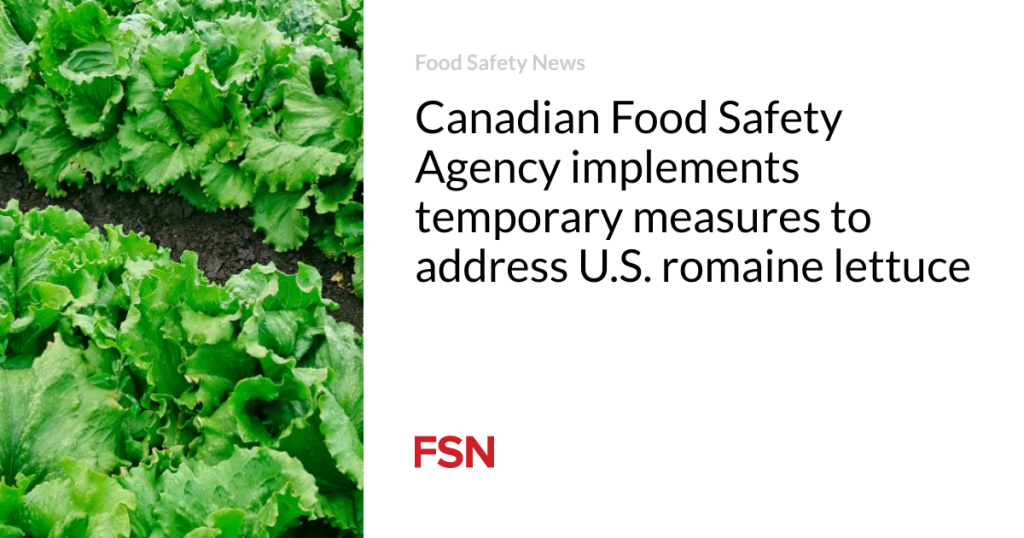To mitigate the risks associated with E. coli O157:H7 in US romaine lettuce, the Canadian Food Inspection Agency (CFIA) has announced the introduction of temporary Safe Food for Canadians (SFC) licensing terms.
The measures will be implemented from 28 September to 20 December.
The action was taken to address repeated outbreaks of food poisoning associated with E. coli O157:H7 in romaine lettuce imported from the United States, according to the CFIA. Investigations by U.S. authorities have traced the source to Santa Cruz, Santa Clara, San Benito, and Monterey counties in California’s Salinas Valley.
During the specified period, importers of romaine lettuce and salad mixes containing romaine lettuce from the United States must comply with one of the following requirements:
- declare that the product is not produced in Salinas Valley County, California as above; or
- We provide a certification form and certificate of analysis for each shipment to ensure that our romaine lettuce does not contain detectable levels of E. coli O157:H7.
The CFIA emphasizes that these temporary SFC license terms are in addition to existing import requirements. Importers must also comply with other Canadian laws and meet certain conditions when importing.
When importing romaine lettuce from outside of designated California counties, the importer must provide a proof of origin showing the state and county where the romaine lettuce was harvested.
For romaine lettuce from Salinas Valley County, the following conditions must be met:
- Certificate using Importer Certificate (CFIA/ACIA 5961; 2023/06) for romaine lettuce products from Salinas Valley, California, USA. Confirm that the sampling was conducted in accordance with the terms of his temporary SFC license and that E. coli O157 was detected. :H7 was not detected.
- A Certificate of Analysis for each Romaine product shipped is issued by an accredited laboratory showing a negative result for E. coli O157:H7.
Importers must ensure that their California romaine lettuce is handled by an accredited member of the California Leafy Vegetable Marketing Agreement (LGMA). Similarly, Arizona-grown romaine lettuce must be handled by a shipper certified by the Arizona LGMA.
Sampling and testing for E. coli O157:H7 can be performed using two options: finished product sampling or pre-harvest sampling. In either case, the laboratory performing the test must be accredited by an accreditation body that complies with the requirements of ISO/IEC 17025:2017 for the specific test.
The CFIA requires importers to strictly adhere to sampling requirements to ensure the safety of romaine lettuce shipments to Canada. Failure to comply with temporary license terms and import requirements may result in enforcement action by the CFIA.
(Click here to sign up for a free subscription to Food Safety News.)
















